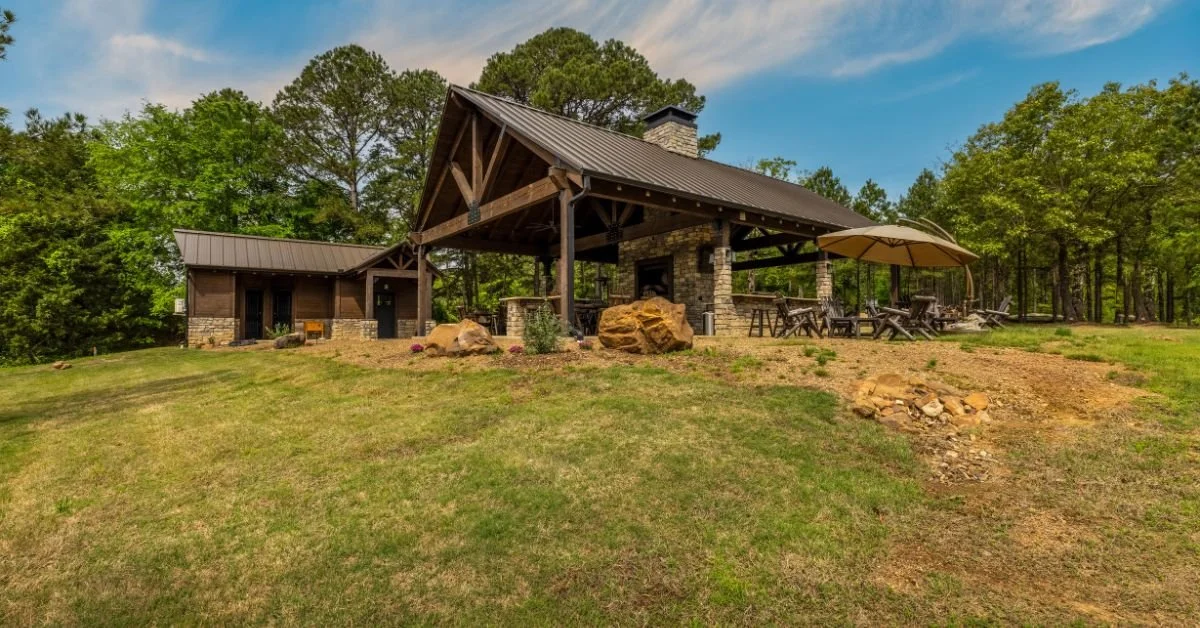10 Mistakes To Avoid When Buying Land in Oklahoma
Buying land in Oklahoma can open the door to exciting opportunities—whether it’s building your forever home, starting a ranch, or investing in property. But while the possibilities are endless, the process isn’t always simple. From zoning laws and utility access to hidden costs and legal requirements, there are plenty of details that can trip up first-time buyers. That’s why it’s important to go in prepared. In this guide, we’ll break down the most common mistakes to avoid when purchasing land in Oklahoma so you can make confident, informed decisions and protect your investment from costly setbacks.
Overlooking Zoning Regulations
One of the most critical aspects of purchasing land is understanding how it can legally be used. Zoning regulations vary greatly from one city or county to another in Oklahoma, and they dictate whether the land can be used for residential, commercial, agricultural, or other purposes. Buying land without confirming its zoning designation can lead to disappointment and financial loss, especially if your intended use does not align with current regulations.
Before finalizing any land purchase, it's essential to review the property’s zoning and land use rules through local government offices or online resources. You may find that a parcel of land you intended to use for farming is zoned for residential use only, restricting agricultural activities. Always ensure the zoning regulations align with your plans.
Skipping a Professional Land Survey
Buying land without a professional land survey can lead to significant boundary disputes and legal complications. A land survey ensures that you know the exact boundaries of the property, its dimensions, and any encroachments or easements that may affect its use. Without this crucial step, you may find yourself in conflicts with neighbors or unknowingly purchasing a smaller piece of land than advertised.
Land surveys can also uncover natural or man-made features, such as flood zones, utility lines, or access roads, that could impact your plans for the property. Always work with a licensed land surveyor to get a clear understanding of what you’re buying.
Failing To Check the Title Deed
Ensuring that the title deed is free of encumbrances is a vital step that many buyers overlook. Purchasing land with undisclosed liens, unpaid taxes, or unclear ownership can result in legal burdens and unexpected expenses. Conducting a title search ensures the property is free of legal claims or hidden issues.
It's best to work with an experienced title company or a real estate attorney to review the title and address any issues before closing the deal. Resolving title issues may take time, but it’s a necessary process to avoid long-term consequences.
Neglecting To Confirm Utility Availability
The availability of essential utilities like water, electricity, sewage, and internet can dramatically affect the usability and value of a piece of land. Some rural or remote areas in Oklahoma may lack convenient access to these utilities, requiring expensive infrastructure development or alternative solutions.
Before buying, confirm the availability of utilities and determine whether they meet your needs. Contact local utility providers or consult the seller to gather accurate information. If these utilities are not present on the property, research the costs and feasibility of setting them up before making a decision.
Not Considering Environmental Factors
Environmental factors, such as flood hazards, soil quality, and natural features, must be evaluated before purchasing land in Oklahoma. Properties located in flood zones may require mandatory flood insurance or specific construction measures to mitigate risks. Similarly, soil conditions can affect a property's suitability for construction or agriculture.
Reviewing environmental reports and consulting with experts can help you identify potential risks and make informed decisions. For example, a parcel with poor soil drainage could lead to costly issues during construction. Verifying that the property supports your plans environmentally can save you from unexpected setbacks and long-term expenses.
Failing To Budget for Additional Expenses
Many buyers focus solely on the purchase price of the land and fail to consider the additional costs involved. Expenses such as property taxes, legal fees, survey costs, and the development of infrastructure can add up quickly. Ignoring these extra costs may lead to budget overruns or financial strain.
It's essential to calculate all associated expenses when planning your land purchase. Discuss potential costs with professionals such as real estate agents, surveyors, and attorneys to create an accurate budget and avoid surprises.
Rushing the Due Diligence Process
The excitement of buying land can sometimes lead buyers to rush through the due diligence process. However, skipping critical steps such as environmental assessments, zoning reviews, and title searches can have costly consequences. Due diligence ensures you fully understand the property and its potential risks before making an investment.
Take your time to thoroughly investigate the land and consult with experts to verify all aspects of the deal. It’s far better to delay the purchase than to face unforeseen complications later.
Disregarding Road and Property Access
Landlocked properties or those with inadequate road access can create significant frustration and issues in the future. Always verify whether the land has legal and physical access via public or private roads. Access problems can complicate transportation, utility connections, and even the resale of the property.
If the land relies on private roads, determine whether easements or agreements exist that allow you to use them. Securing clear, legal access to the property is a key step that will impact all other ownership considerations.
Underestimating Long-Term Maintenance Needs
Owning land requires ongoing maintenance, which can be more demanding than buyers may expect. Tasks like clearing brush, maintaining access roads, or managing invasive plant species can add to the cost and effort of ownership. Understanding these long-term responsibilities before purchasing will help you plan appropriately.
Research what type of maintenance the land will require and consider whether you have the time, resources, or expertise to manage it effectively. This will help you avoid being overwhelmed after the purchase.
Working Without Expert Guidance
One of the biggest mistakes buyers make is trying to handle the entire land purchase process independently. Working with experienced professionals such as real estate agents, attorneys, and surveyors is essential for navigating the complexities of buying land in Oklahoma.
These experts can help you identify potential issues, negotiate terms, and ensure all legal requirements are met. Their guidance not only makes the process smoother but can also save you from costly mistakes.
Know What You’re Getting Into
Purchasing property offers exciting opportunities, but it also comes with responsibilities that demand careful planning and due diligence. By taking the time to avoid common mistakes when buying land in Oklahoma, such as ignoring zoning regulations, skipping land surveys, and failing to check the title deed, you can ensure a smooth transaction and a successful outcome. Whether you're buying for personal use, farming, or investment purposes, being thorough and working with professionals will help you make informed decisions and protect your investment.
Looking for the perfect retreat or investment opportunity? Explore our lake property for sale in Oklahoma and make your dream of owning waterfront land a reality. Whether you’re seeking the tranquility of lakeside living or a lucrative investment, our listings offer something for everyone.



